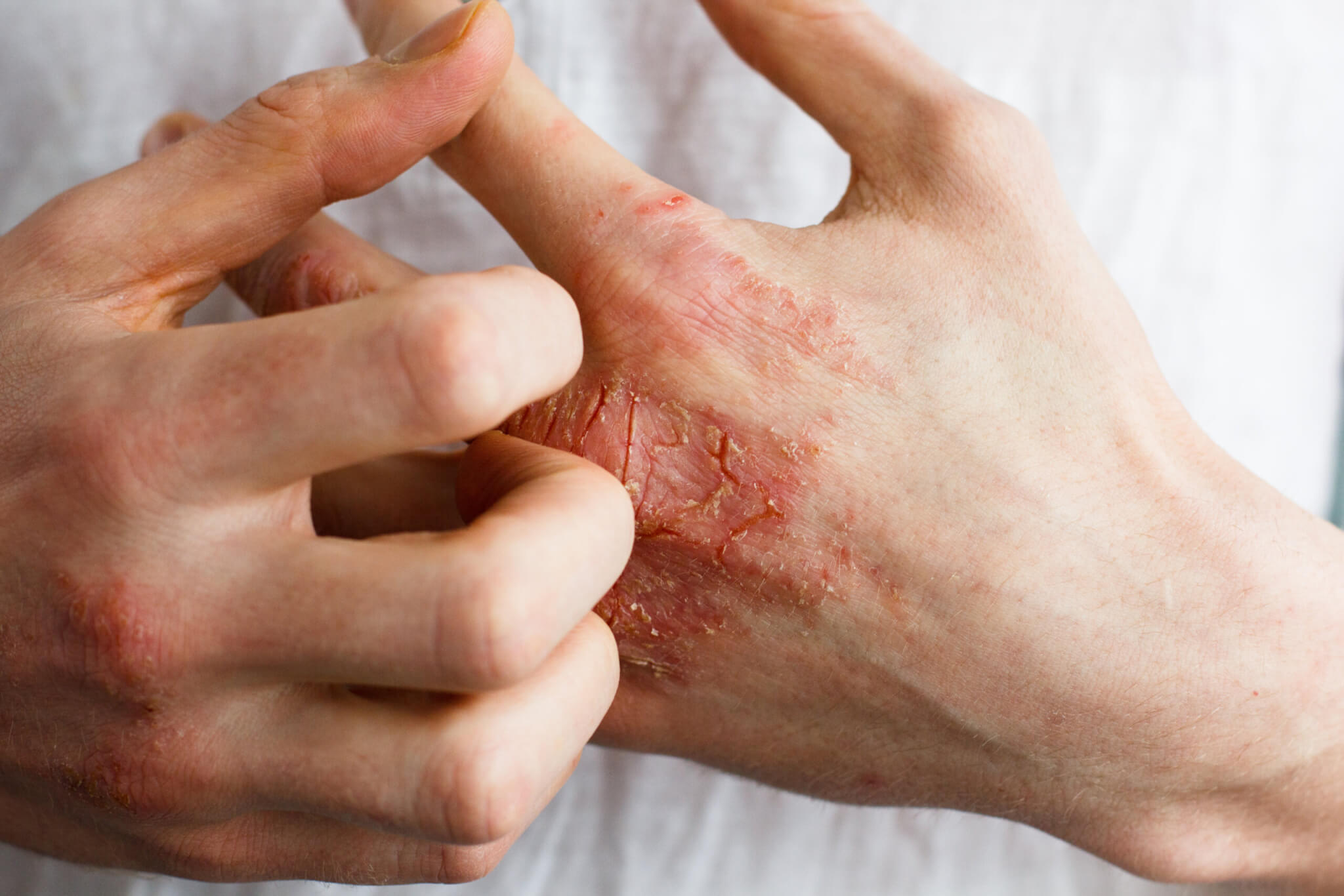Recently, you may have heard reports of a link between eczema and sodium intake. It has been a trending topic since the publication of an article outlining the results of research that suggest a solid link. According to Dr. Lindsay Ackerman of U.S. Dermatology Partners Phoenix, “After noting an increase in eczema in industrialized countries, several groups of researchers went to work trying to understand this link. Diet seemed to be a common lifestyle factor that may be linked to increased cases of eczema. One of the most common factors was sodium consumption, leading researchers to look into a potential link.” In this blog, Dr. Ackerman explains eczema basics, reviews recent research connecting the consumption of sodium and eczema, and provides recommendations for managing eczema flareups.
Understanding Eczema
The National Eczema Association estimates 1 in 10 people have some form of eczema, and this condition is more common in children. Eczema is the descriptive term used to convey several different inflammatory skin conditions. Atopic dermatitis is one of the most commonly occurring types of eczema, and as a result, it is what most people think of as “eczema”. Dr. Ackerman says, “Regardless of type, eczema is caused by an overactive immune response that leads to red itchy, bumpy changes in the skin, along with skin dryness, barrier dysfunction, and inflammation. These effects are usually intermittent, and they may be triggered by a variety of factors, including eating specific foods.”
Sodium Intake and Its Health Implications
According to the FDA, adults do need sodium as part of their diet. Inadequate sodium levels cause muscle weakness, stomach upset, headache, and fatigue. Additionally, sodium in the skin helps to prevent moisturize loss and skin infections. The recommended daily sodium intake in adults is about 2,300 mg as part of a healthy diet, which is the equivalent of a teaspoon of salt. Most people in the U.S. consume about 3,400 mg of sodium each day. If you’re looking to reduce your sodium intake as part of your plan to manage eczema flareups or improve whole-body health, consider the following tips:
- Replace salt – most people use excessive salt to flavor their foods. Replacing salt with other seasonings when preparing foods can provide adequate flavor with less sodium.
- Check the label – read the nutrition label and look for lower sodium options.
- Skip pre-made sauces, seasonings, and condiments – many pre-made sauces, seasonings, and condiments have extremely high sodium levels. Making your own can substantially reduce sodium content in meals.
- Reduce portions – if you’re consuming foods that are higher in sodium, eat less of them to reduce your sodium intake.
- Limit snacking – many snack foods are very high in sodium, so limiting snacking reduces sodium intake.
- Choose fresh products – frozen dinners and canned food tend to be high in sodium due to the preservatives used to keep them fresh. Limiting consumption of these foods or replacing them with fresh options can reduce sodium intake.
Recent Research on Sodium Intake and Eczema
In the June 2024 edition of the Journal of the American Medical Association Dermatology, researchers out of the University of California San Francisco published the findings of a cross-sectional study conducted from 2006 to 2010. The results indicated a correlation between increased sodium consumption and higher risk for developing eczema. Specifically, 215,832 adult urinalysis results were reviewed. Of those tested, having 1g higher sodium secretion compared to the norm of 3.01g indicated an 11% increase in eczema diagnoses and increasing eczema severity. 16% of those with higher sodium levels had an active eczema flareup.
Practical Advice for Eczema Patients
One of the most unique aspects of eczema is the variety of triggers that lead to eczema flareups. Dr. Ackerman says, “Increased sodium consumption may be a risk factor for developing eczema or experiencing flareups, but everyone has different triggers that lead to flares. Working with a dermatologist to identify common eczema risk factors that contribute to disease worsening signs/symptoms is one of the first steps to preventing eczema flareups.” In addition to identifying eczema triggers, Dr. Ackerman recommends the following practical steps for preventing flares:
- Take note of ingredients – review chemical ingredients in skincare products, cosmetics, household cleansers, laundry detergents, and other products you come in contact with regularly. Try to avoid exposure to harsh ingredients like fragrances, dyes, and chemical additives. You can look for products marketed as gentle, hypoallergenic, fragrance-free, or otherwise geared toward use by those with sensitive skin.
- Take care around water – while water may seem like a hydrating source, too much time in warm water strips moisture from skin. Limit time in the shower, use lukewarm or cool water, and moisturize skin as soon as you’re out of the shower.
- Take off itchy fabrics – clothes, linens, and towels made from itchy or rough fabrics may lead to a flareup in eczema or make the flareup more severe. Wear soft, breathable fabrics that don’t sit close to skin or trap moisture against the skin.
Maintain a Balanced Diet & Manage Eczema Symptoms
When it comes to the link between eczema and sodium, Dr. Ackerman concludes, “The research is still ongoing, but there are strong indicators that reducing sodium intake may be beneficial in managing eczema symptoms. Even without complete certainty that there is a connection between sodium intake and eczema, we know that diet contributes to skin health. Healthy food choices are good for a healthy body, including healthy skin. Our bodies need adequate hydration and nutrients to perform daily functions, including skin cell repair and regeneration. When working with a dermatologist to improve skin health, dietary changes may also be recommended. That all starts when you talk to a professional who can guide you to achieving and maintaining better healthier skin.”
Talk to a Dermatologist
If you’re struggling with itchy, dry skin, it may be time to talk to a dermatologist about prevention and treatment options to manage eczema symptoms. At U.S. Dermatology Partners, we make getting started working with us simple and easy. Just take a few moments to complete our online scheduling request form, and we’ll reach out to finalize the details of your upcoming visit.
Find a location near me
or


